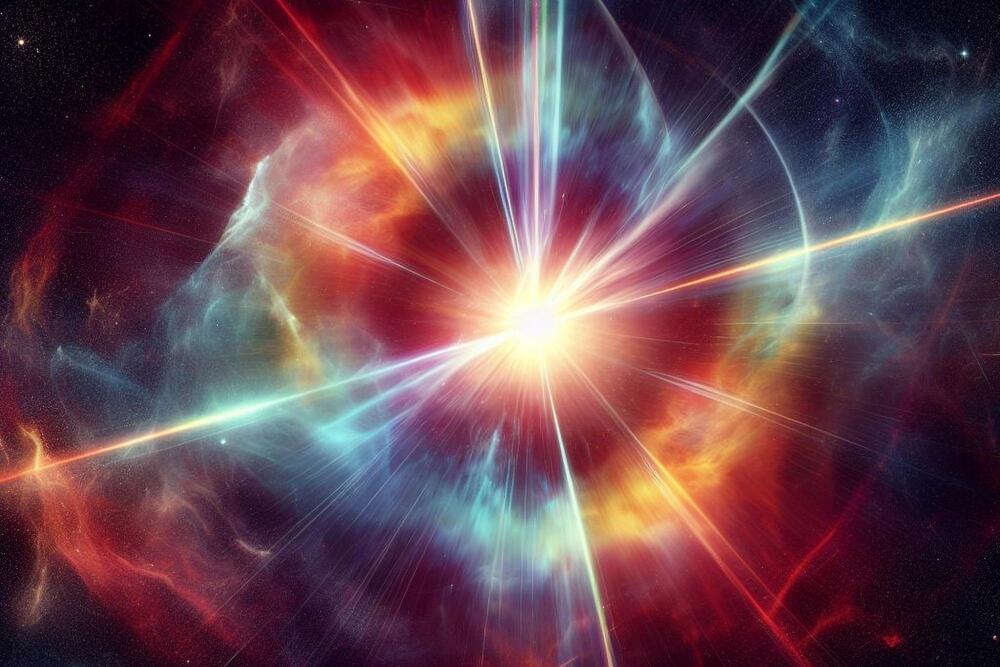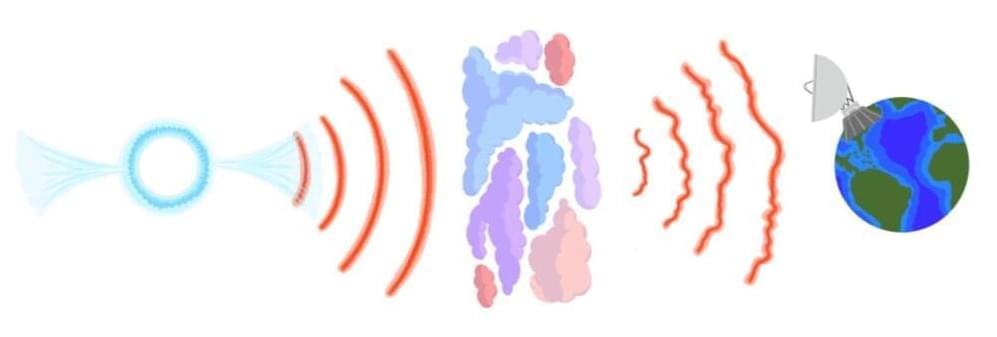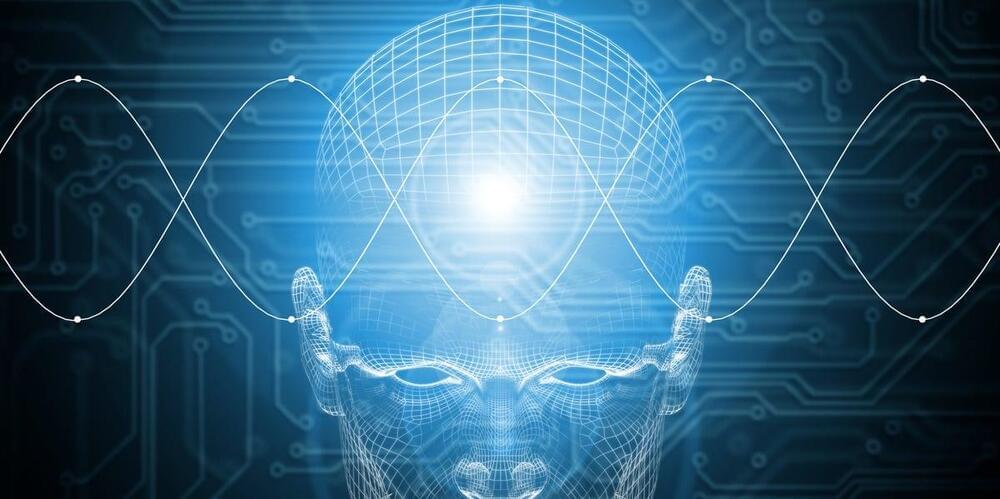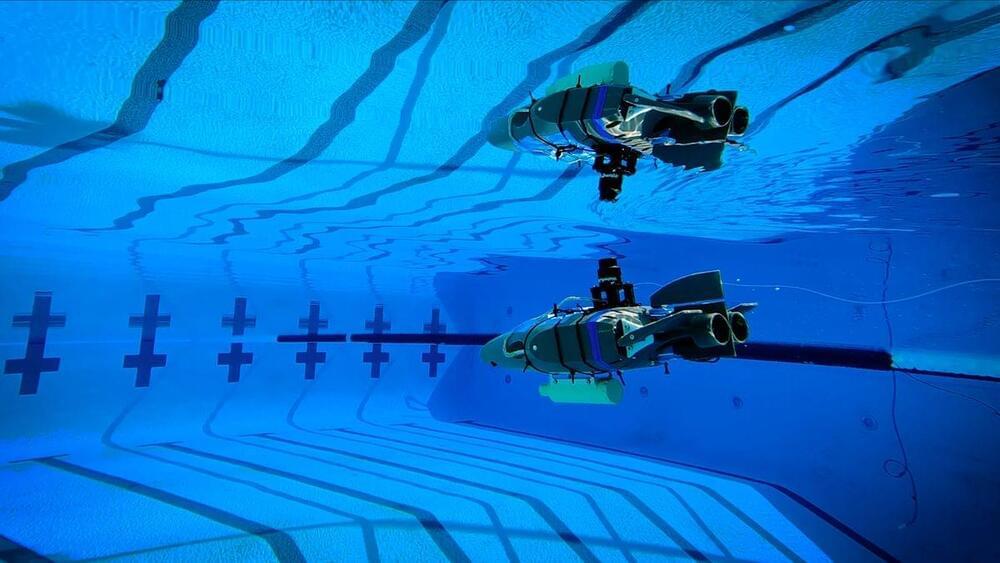An exploration of two new papers proposing new chemicals that SETI may search for in the atmospheres of exoplanets that may indicate life.
My Patreon page!:
/ johnmichaelgo…
I’m also the host of Event Horizon!
/ eventhorizonshow
Links:
An exploration of two new papers proposing new chemicals that SETI may search for in the atmospheres of exoplanets that may indicate life.
My Patreon page!:
/ johnmichaelgo…
I’m also the host of Event Horizon!
/ eventhorizonshow
Links:

Distortions in pulsar signals reveal flaws in galactic models, pointing to new opportunities for understanding the universe and studying cosmic waves.
By analyzing patterns in pulsar signals, researchers discovered discrepancies in existing models of how the galaxy impacts pulsar signals, suggesting that these models need updates. The findings not only deepen our understanding of the universe but also improve our ability to study phenomena like gravitational waves.
Dr. Sofia Sheikh from the SETI Institute led a groundbreaking study that explores how pulsar signals—emissions from the spinning remnants of massive stars—become distorted as they travel through space. Published on November 26 in The Astrophysical Journal, this research was conducted by a group of undergraduate students from the Penn State branch of the Pulsar Search Collaboratory, a student club dedicated to pulsar science.
For every yellow star like our own there are ten times as many smaller stars. Red Dwarfs are the most common type of star, outnumbering all the others combined, and as we head out into interstellar space to colonize the galaxy, the exoplanets around these red alien suns may be the most common home for settlers.
Get a free month of Curiosity Stream: https://curiositystream.com/isaacarthur.
Join this channel to get access to perks:
/ @isaacarthursfia.
Visit our Website: http://www.isaacarthur.net.
Join Nebula: https://go.nebula.tv/isaacarthur.
Support us on Patreon: / isaacarthur.
Support us on Subscribestar: https://www.subscribestar.com/isaac-a…
Facebook Group: / 1583992725237264
Reddit: / isaacarthur.
Twitter: / isaac_a_arthur on Twitter and RT our future content.
SFIA Discord Server: / discord.
Credits:
Colonizing Red Dwarfs.
Science \& Futurism with Isaac Arthur.
Episode 275, January 27, 2021
Written, Produced \& Narrated by Isaac Arthur.
Editors:
Darius Said.
Jason Burbank.
Jerry Guern / @jerrysstories711
Keith Blockus.
S. Kopperud.
Cover Art:
Jakub Grygier https://www.artstation.com/jakub_grygier.
Graphics:
Engineers took to a competition pool to test robotic prototypes for an ambitious mission concept—a swarm of underwater explorers seeking signs of life on alien ocean worlds.
NASAs upcoming missions to Europa will deploy advanced robots to probe its icy oceans for life. The robots, part of the SWIM project, have been rigorously tested on Earth and through simulations to handle extraterrestrial conditions.
Exploring Europa: NASA’s Ambitious Mission.

A study that sheds new light on how pulsar signals—the spinning remnants of massive stars—distort as they travel through space, published in The Astrophysical Journal, was led by Dr. Sofia Sheikh, SETI Institute researcher, and performed by a multi-year cohort of undergraduate researchers in the Penn State branch of the Pulsar Search Collaboratory student club.
Maura McLaughlin, Chair, Eberly Distinguished Professor of Physics and Astronomy, West Virginia University, created the Pulsar Search Collaboratory to engage high schoolers and undergraduates in pulsar science, and she helped facilitate access to the data used in this study.
Using archival data from the Arecibo Observatory, the student team found patterns that show how pulsar signals change as they move through the interstellar medium (ISM), the gas and dust that fills the space between stars. The team measured scintillation bandwidths for 23 pulsars, including new data for six pulsars not previously studied.

We may not be the only beings in the universe who use artificial intelligence. That’s according to some astronomers who say that an intelligent civilization anywhere in the cosmos would develop this tool naturally over the course of their cultural evolution.
After 13.8 billion years of existence, life has likely sprung up countless times throughout the cosmos. According to the Drake Equation, which calculates the probability of an existing, communicating civilization, there are currently an estimated 12,500 such intelligent alien societies in the Milky Way Galaxy alone. And if there are aliens who think in a way that we do, and created cultures that developed technology like us, then they probably invented a form of artificial intelligence, too, scientists say.
Assuming AI has been an integral part of intelligent societies for thousands or even millions of years, experts are increasingly considering the possibility that artificial intelligence may have grown to proportions we can scarcely imagine on Earth. Life in the universe may not only be biological, they say. AI machine-based life may dominate many extraterrestrial civilizations, according to a burgeoning theory among astrobiologists.

Designed to one day search for evidence of life in the briny ocean beneath the icy shell of Jupiter’s moon Europa, these robots could play a key role in detecting chemical and temperature signals that might indicate alien life, according to scientists at NASA’s Jet Propulsion Laboratory (JPL), who designed and tested the robots.
“People might ask, why is NASA developing an underwater robot for space exploration?” said Ethan Schaler, the project’s principal investigator at JPL. “It’s because there are places we want to go in the solar system to look for life, and we think life needs water.”


A team of astrophysicists, led by our Institute for Computational Cosmology, have developed a new model that could estimate how likely it is for intelligent life to emerge in our Universe and beyond.
In the 1960s, American astronomer Dr Frank Drake came up with an equation to calculate the number of detectable extraterrestrial civilisations in our Milky Way galaxy.
More than 60 years on, researchers at Durham, the University of Edinburgh and the Université de Genève, have produced a new model based on the conditions created by the acceleration of the Universe’s expansion and the amount of stars formed instead.
